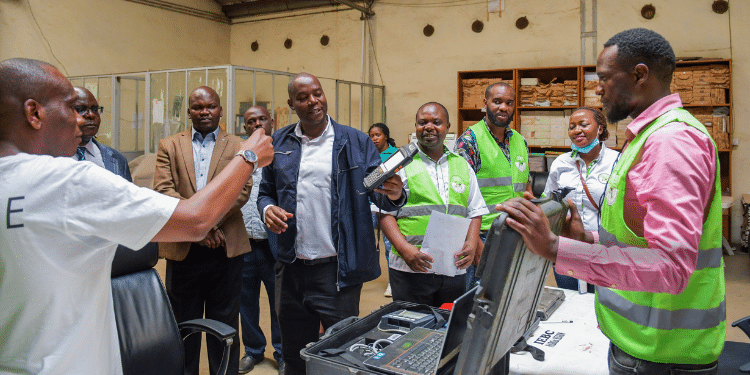Divorce is never an easy decision. It’s a deeply personal journey, filled with emotional and legal challenges.
If you’ve decided to take this step or are helping someone navigate it, understanding the divorce process in Kenya can make things clearer.
Knowing what to expect can help ease some of the confusion and stress.
So, let’s break down the process, step by step, and make it as straightforward as possible.
What Do You Need to File for Divorce?
Before filing for divorce in Kenya, you need to have some important legal requirements in order.
Think of these as the basic building blocks for your case.
These include:
A petition for divorce (the main document requesting the court to dissolve your marriage).
A verifying affidavit to confirm the truthfulness of your petition.

An authentic certificate of marriage to prove the marriage exists.
A list of witnesses and their written statements, if applicable.
Any other supporting evidence to back up your grounds for divorce.
Having these documents ready is a key first step to getting started.
Also Read: Attorney General Recalls all Marriage Certificates
What Are the Grounds for Divorce in Kenya?
Not all marriages can be dissolved; there must be valid legal reasons for filing for divorce. In Kenya, the Marriage Act, of 2014 lays out the grounds for divorce.
While the specifics depend on the type of marriage, whether civil, Christian, customary, Hindu, or Islamic, there are general reasons that apply to most.
These include:
1. Adultery – When one spouse is unfaithful.
2. Cruelty – Physical or emotional abuse by a spouse.
3. Desertion – When one partner abandons the other for an extended period.
4. Exceptional depravity – Extreme, unacceptable behaviour by one spouse.
5. Irretrievable breakdown – When the marriage can no longer function, and reconciliation is impossible.
If any of these apply, you have a foundation for filing a divorce case.
Contested vs. Uncontested Divorces
Here’s where things can get tricky. Divorce in Kenya can take one of two paths: contested or uncontested.
A contested divorce happens when you and your spouse disagree on key issues like child custody, property division, or alimony.
In this case, the court steps in to resolve these disputes, which can make the process longer and more complex.
An uncontested divorce, on the other hand, is much simpler. This happens when both of you agree on everything, assets, parenting, finances, and more.
The court’s role is to review your agreement and, if satisfied, approve the divorce. It’s quicker, less stressful, and usually more cost-effective.
If you can agree on terms, an uncontested divorce is the way to go.
Also Read: Landmark Ruling Sets Condition for Couples in Customary Marriages to Seek Divorce
How Does the Divorce Process Work in Kenya?
Let us get into the nitty-gritty of how to file for divorce. The process is structured, so knowing the steps can help you prepare.
1. Filing the Divorce Petition
The first step is filing a petition for divorce. This document outlines why you’re seeking to end the marriage.
If you’re working with a lawyer (highly recommended), they will handle this for you and attach all the necessary documents, including your marriage certificate and evidence supporting your claims.
Your lawyer will also file a notice to appear, giving your spouse (the respondent) 14 days to respond to the petition.
2. The Respondent’s Response
Once served with the petition, your spouse has two options:
Agree with the divorce (uncontested).
Disagree and contest it, usually by filing a defence.
If they don’t respond within 14 days, the court can proceed based solely on your evidence.
3. Issuing the Registrar’s Certificate
Once the paperwork is complete, your lawyer will request a Registrar’s Certificate from the court.
This certificate confirms that the case is ready for a hearing.
4. The Hearing
This is where things get serious. During the hearing, both sides present their evidence.
You, as the petitioner, need to prove your grounds for divorce—whether it’s cruelty, adultery, or any other reason.
If your spouse contests the divorce, they’ll present their defence here.
It’s also the stage where witnesses can testify to support your case. The court listens to both sides before moving to the next step.
5. Judgment and Decree Nisi
After the hearing, the court reviews all the evidence and sets a date for judgment, usually within 21 days. If the court is satisfied that your grounds for divorce are valid, it will issue a Decree Nisi.
This decree is like a “provisional” divorce. It means the court has granted the divorce but allows a 30-day waiting period before it becomes final.
This window gives either party time to reconsider or raise objections.
6. Decree Absolute
If there are no objections after 30 days, you can apply for a Decree Absolute.
This is the final legal document that officially ends the marriage. Once issued, you are legally divorced, and free to move on with your life.
Also Read: Praying to Get a Husband or Wife? What’s in Marriage
How Long Does the Process Take?
The divorce process in Kenya can take anywhere from six months to several years, depending on whether it’s contested or uncontested and how busy the courts are.
Uncontested divorces are much quicker, while contested cases can drag on due to hearings and disputes.
Should You Hire a Lawyer?
While it’s possible to represent yourself, family law in Kenya can be complicated. Hiring a lawyer ensures that your paperwork is in order, your rights are protected, and your case is presented effectively in court.
A good lawyer can also help mediate and resolve disputes, potentially saving you time and stress.
Final Thoughts
Filing for divorce is rarely easy, but understanding the process can make it less daunting.
In Kenya, the path to ending a marriage requires careful preparation, adherence to legal procedures, and sometimes a bit of patience.
If you’re thinking about filing for divorce, take it one step at a time. Gather your documents, seek legal advice, and focus on building a brighter future for yourself. Remember, you’re not alone, help is always available to guide you through this journey.
With the right knowledge and support, you can navigate the process with confidence and clarity.
Follow our WhatsApp Channel and join our WhatsApp Group for real-time news updates.








































































